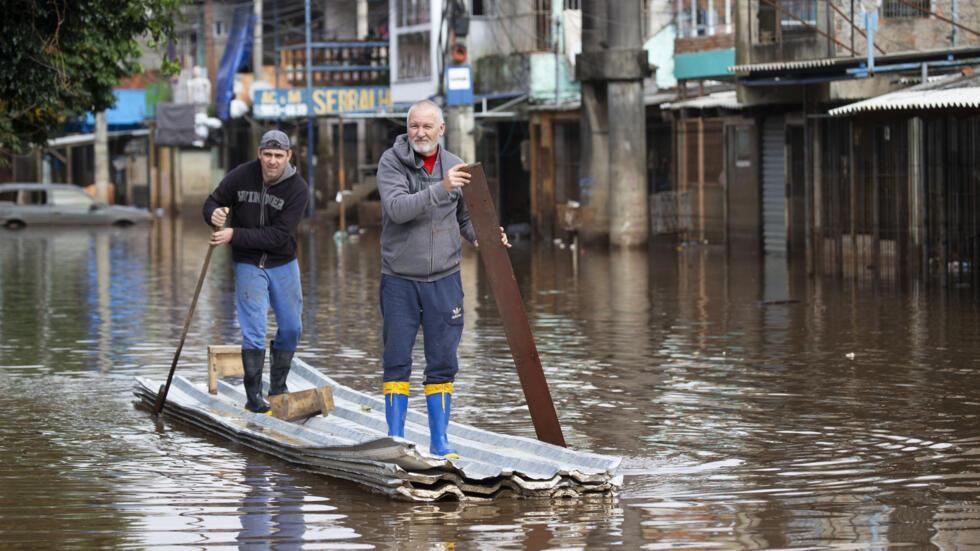
Climate change doubled the likelihood of the historic floods in southern Brazil and amplified intense rains caused by the El Nino weather phenomenon, scientists said on May 3.
Three months' worth of rain was dumped on the southern state of Rio Grande do Sul over two weeks in an "extremely rare event, expected to occur only once every 100-250 years," according to a study published by the World Weather Attribution (WWA) group.
The flooding in late April and early May submerged cities, farms and an international airport, affecting more than 90 percent of the vast state, an area equivalent to that of the United Kingdom.
The disaster left 172 people dead and displaced around 600,000.
"The researchers estimated that climate change made the event more than twice as likely and around six to nine percent more intense," the WWA said in a statement.
On top of that, the El Nino phenomenon made rainfall between three and 10 percent more intense, said the global network of scientists that assesses the link between extreme weather events and climate change.
"The scary thing about these floods is that they show us that the world needs to be prepared for events so extreme, they are unlike anything we've seen before," said Maja Vahlberg, climate risk consultant at Red Cross Red Crescent Climate Center.
Regina Rodrigues, a researcher at the Federal University of Santa Catarina, said the disaster showed that even when El Nino was in a weakening phase, as it currently is, it could be extremely dangerous
"Climate change is amplifying the impact of El Nino in southern Brazil by making an extremely rare event more frequent and intense," she said.
Of the four biggest floods ever seen in the regional capital Porto Alegre, "three occurred in the last nine months," Rodrigues told a press conference. "This is very rare."
Rio Grande do Sul is particularly vulnerable to flooding, with a vein-like network of river systems covering the region.
Porto Alegre lies on the banks of the Guaiba Lake where five rivers converge before emptying into South America's largest freshwater lagoon, the Lagoa dos Patos.
However, until 2023 the city had not seen a major flood in six decades.
This may have lulled residents into a false sense of security, said Maja Vahlberg, Climate risk consultant at Red Cross Red Crescent Climate Center.